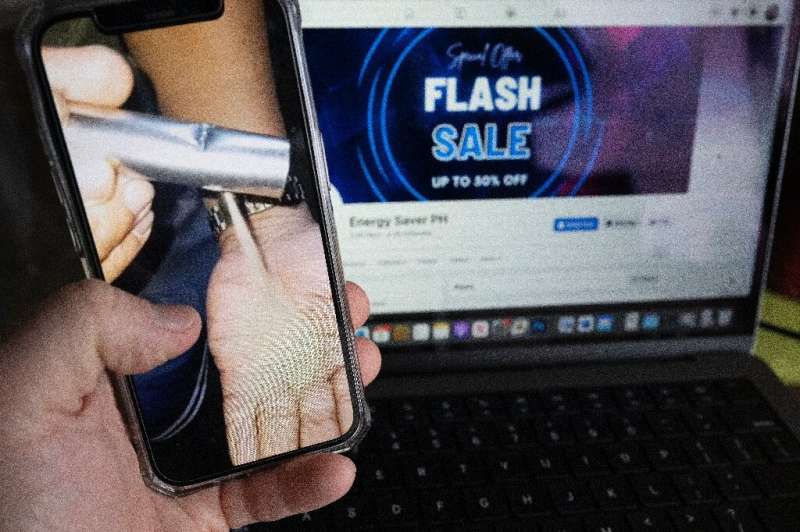A Filipino consumer fumes as she rips open a portable charger to discover she has been conned—the batteries are choked with sand, making her yet another victim of scammers on Facebook.
'Scams evolving'
A spokesperson for Meta, Facebook's owner, said it views the "threat of scams seriously" and had taken action including disabling many of the ad accounts responsible for fraud reported by AFP's fact checkers.
"The people who push these kinds of ads are persistent, well-funded, and are constantly evolving," the spokesperson said.
AFP has a global team of journalists who debunk misinformation as part of Meta's third-party fact-checking program.
Last October, AFP debunked Facebook posts claiming free electric bikes were on offer in Indonesia after the government raised fuel prices. Meta said it had disabled pages and profiles linked to the scam.
But Hendro Sutono, a member of the citizen's group Indonesia Electric Motorcycle Community, voiced concern that fake stores offering electric bikes have cropped up on the platform—and are hard to detect.
"The schemers take pictures from the real stores and repost them on their cloned accounts, so they look really legitimate," Sutono told AFP.
Sutono said he feared fraud could tarnish the image of the electric vehicles to the extent people will give up using them.
In many cases in the United States, scammers pose as utility company representatives. One Oregon-based firm warned its consumers last year that "scams are constantly evolving" and fraudsters tried to target some of them using "Facebook messenger."
"We see a growing number of utility front groups which are organizations that appear independent but are targeting their audience via Facebook, Instagram and TikTok," Schouker told AFP.
"They amplify misinformation... while masking their true identity."
© 2023 AFP
Citation: Fakery and fraud: Energy scammers cast 'wide net' on Facebook (2023, February 8) retrieved 8 February 2023 from https://techxplore.com/news/2023-02-fakery-fraud-energy-scammers-wide.html
This document is subject to copyright. Apart from any fair dealing for the purpose of private study or research, no part may be reproduced without the written permission. The content is provided for information purposes only.










 User Center
User Center My Training Class
My Training Class Feedback
Feedback












Comments
Something to say?
Log in or Sign up for free